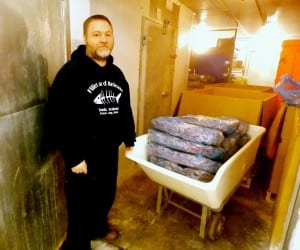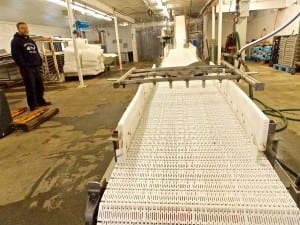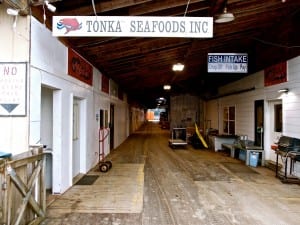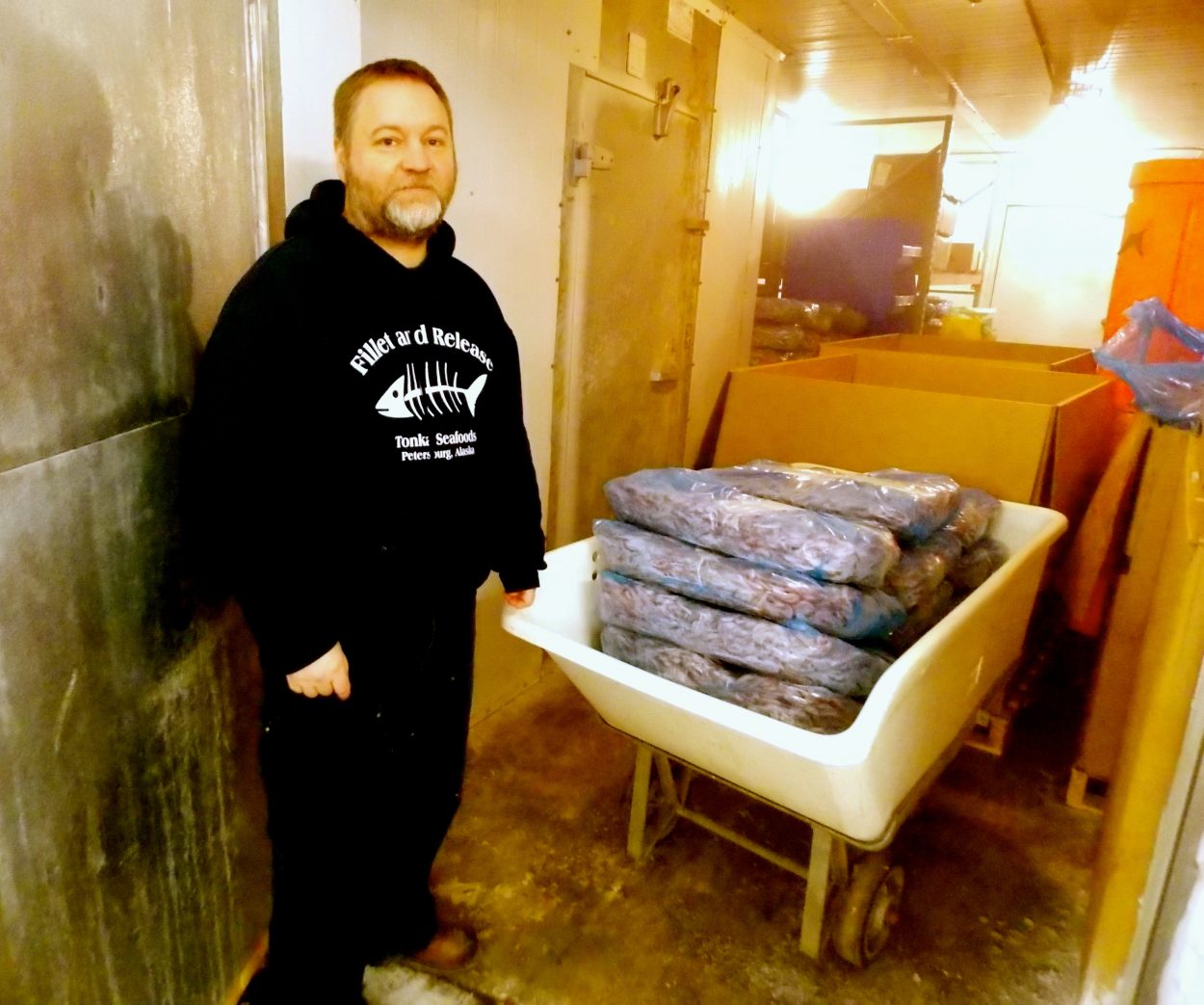
Seth Scrimsher stands in one of Tonka’s freezers with blocks of frozen pink shrimp. Photo/Angela Denning
Audio Player
Shrimping used to be a robust industry in Petersburg. The state’s first shrimp plant started here in 1916 but the market ceased being profitable and the last plant closed down ten years ago.
Still, co-owner of the local seafood processor Tonka Seafoods, Seth Scrimsher, says the product is special.
“There are very few cold water shrimp left in the world,” Scrimsher says. “It’s mostly warm water shrimp or farmed shrimp. And the cold water shrimp is known for a sweeter flavor.”
We’re talking about pink shrimps, the tiny ones found on salads.
Tonka Seafoods is a locally-owned business located just outside of downtown Petersburg and they think they may have found a new shrimp market involving Iceland and England.
“We need to see if we can freeze them fast enough and maintain the quality and ship it to the buyer as cheaply as possible to work under their budget contraints,” Scrimsher says.
Tonka can freeze up to 30,000 pounds of shrimp within 24 hours but this winter was about testing. They froze smaller batches totaling 250,000 pounds. Those shrimp are enroute to Iceland where they will be cooked and peeled and then sent on to markets in England.
“Iceland has a tremendous amount of quota for these pink shrimp but it’s been steadily declining which is why they’re looking over here to replace some of that,” Scrimsher says.
That means competing against Iceland’s at-sea processors who freeze the shrimp at sea.
Tonka’s process starts at the back dock of the plant located along the Wrangell Narrows so boats can drive up and unload their catches.
I follow Scrimsher into the first room off the dock.

Seth Scrimsher stands near a conveyor belt in the Tonka Seafoods’ plant used for sorting shrimp. Photo/Angela Denning
“The shrimp comes in here, would get dumped on that table where the initial sorting and the distribution to the belt begins,” Scrimsher says.
As the shrimp travel along a large white conveyor belt they are rinsed and sorted by about a half dozen workers called “graders”.
“And they’ll pick out the seaweed, the pieces of broken shrimp and pick out the side stripes and so we’re just running clean pink shrimps,” Scrimsher says.
The cycle starts in the morning with the catch the fishermen delivered the night before. They try to have the shrimp frozen within 24 hours.
They’re already good and cold as fishermen are icing the shrimp when they catch them which Scrimsher says takes a careful hand.
“They’re layer icing them and then we ice them heavier once we get here,” Scrimsher says. “There’s kind of a fine line between too much ice and just enough ice.”
Too much ice changes the flavor of the shrimp and too little will spoil it.
The shrimp get frozen in 22 pound blocks in the freezing area. There are two huge storage freezers that keep the shrimp frozen before shipping.
Tonka should know by mid-March if this whole process will work out with the international markets. And if it does?

Tonka Seafoods is located just outside of downtown Petersburg along the Wrangell Narrows. Photo/Angela Denning
“Then we would try to add a few more fishermen to try to catch and process the entire guideline harvest amount,” Scrimsher says.
That’s about three million pounds of shrimp near Petersburg. On a busy day, that would mean employing 18 people working shrimp at the plant.
Although there is a strong domestic market for pink shrimp, Tonka doesn’t have the equipment to process it yet but Scrimsher says with luck, that could one day be happening too.











